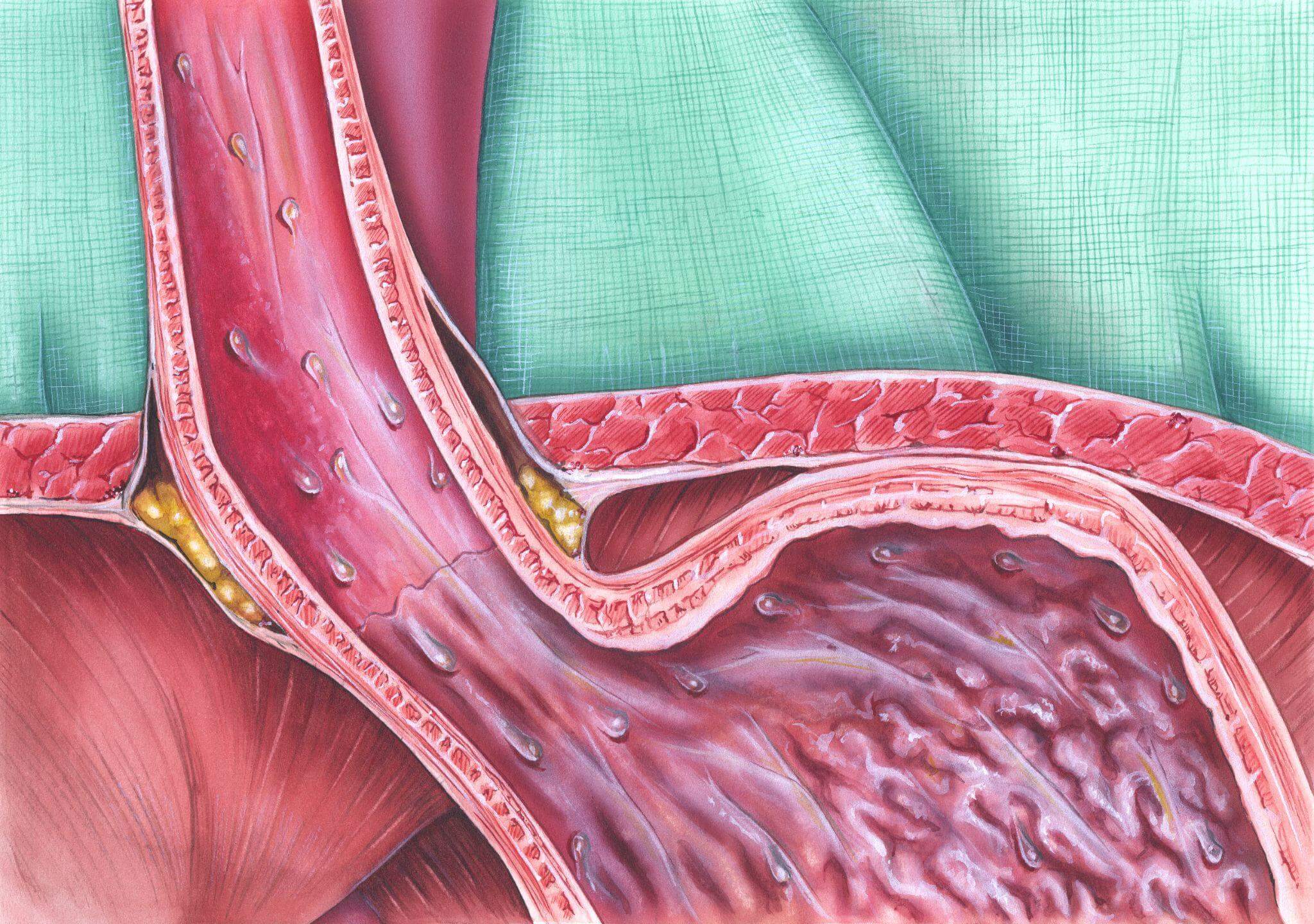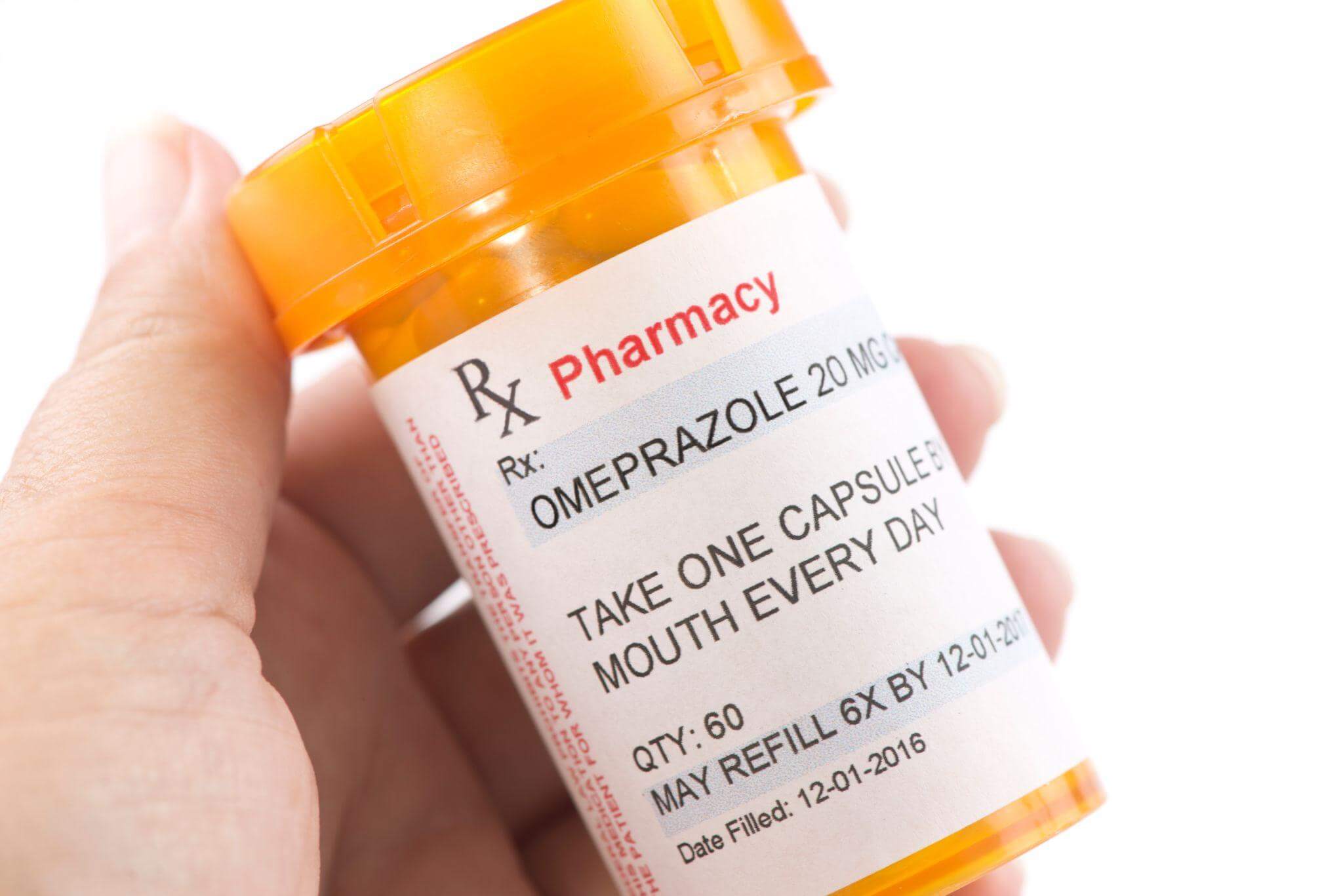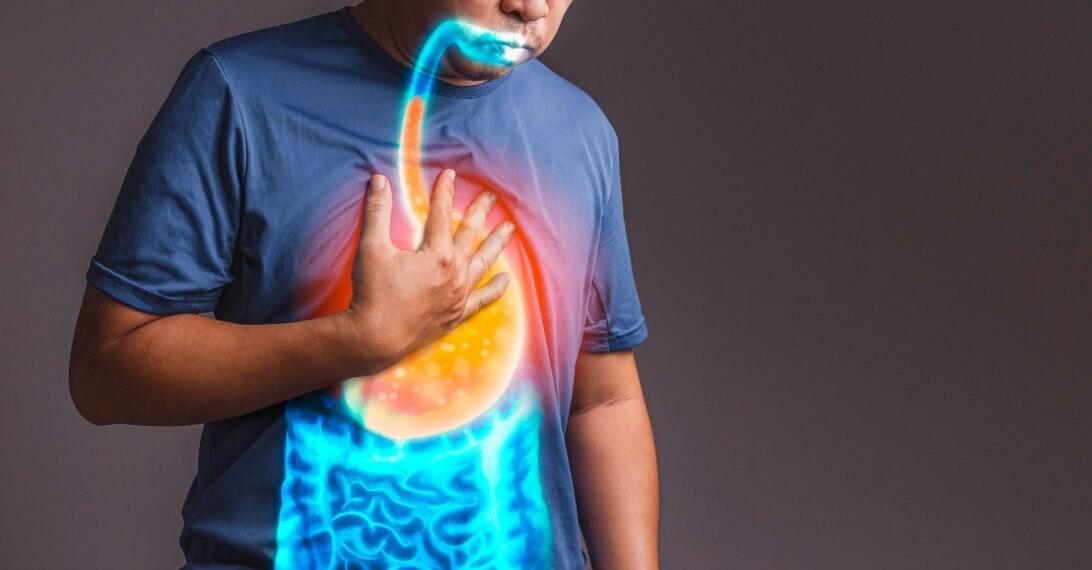Highlights
- To answer the question, “What is gastroesophageal reflux disease?,” you must understand how the esophagus works.
- The cause of GERD is the malfunctioning of the lower esophageal sphincter.
- When the esophagus can’t keep your stomach’s contents down, acid reflux occurs.
- Regular and frequent acid reflux is diagnosed as gastroesophageal reflux disease (GERD).
- Find the lowest price for GERD medications with BidRx.
Gastroesophageal reflux (GER) occurs when the acidic contents of your stomach flow back into your esophagus, the tube connecting your stomach to your mouth. This stomach acid can irritate the esophagus, causing a burning sensation known as heartburn.
When reflux happens frequently, it degenerates into a longer-lasting condition called gastroesophageal reflux disease (GERD).
What Is Gastroesophageal Reflux Disease (GERD)?
GERD is a disease resulting from the irritation of the lining of the esophagus. The lower part of the esophagus has a sphincter that prevents the contents of the stomach from flowing back up. This sphincter may weaken or relax over time. When it does, the acidic mix in the stomach flows backward, into the esophagus.
In extreme cases, GERD can ruin your quality of life, but there are ways to manage it.
GERD Symptoms
Experiencing heartburn now and then is normal. When it happens repeatedly and consistently, you have a GERD problem.
Some of GERD’s common symptoms are:
- A burning sensation of fullness in the middle of your chest that may get worse when you lie down
- Persistent upper abdominal or chest pain
- A feeling of fullness or a lump in your throat
- Getting backwash in your mouth when belching or bending over
- Difficulty swallowing
- Foul breath
- Nausea
- Difficulty breathing
- A bitter, acidic taste in your mouth
GERD that persists at night can disturb your sleep and cause other symptoms:
- Poor sleep quality
- Laryngitis
- A lingering cough
- Worsening bouts of asthma
GERD symptoms are often the worst after eating.
GERD Causes
Your lower esophageal sphincter (LES) is at the root of your GERD problems. This organ acts like a valve. It opens to let food and drinks flow into your stomach, then closes to prevent the contents of your stomach from flowing back up.
The LES is a complex organ with links to the esophageal muscle and the diaphragm. If any of these muscles weaken, the valve can’t close properly and GERD occurs.
There are several potential causes of a weakened esophagus, and many of them are preventable.
Potential causes of GERD include:
- Hiatal hernia
- Radiation therapy to the throat or neck
- Pregnancy
- Smoking
- Overeating or being overweight
- Alcohol
- Certain medications and dietary supplements
- Some foods

When the LES doesn’t close, GERD happens
GERD Risk Factors
Heartburn is a widespread GERD symptom affecting more than 60 million Americans at least once a month. Roughly 15 million people suffer from heartburn every day.
Hiatal hernias represent a significant risk factor for GER and GERD. Not everyone who has a hiatal hernia goes on to develop GERD, but many people do. Hiatal hernias do not require treatment except for rare and severe cases.
Other factors predisposing you to GERD are:
- Pregnancy
- Being overweight
- Lupus
- Rheumatoid arthritis
- A condition called gastroparesis, where food stays in your stomach longer than it should
These are risk factors GERD patients can’t control. In addition to these, many lifestyle choices contribute to an increased GERD risk, including:
- Eating before going to bed
- Having large meals that put a strain on your digestive system
- Taking certain medications and supplements
- Smoking
- Eating foods that provoke GERD
GERD and Diet
Some foods can increase your GERD risk, while others can reduce your symptoms.
Avoid these foods and beverages to reduce reflux symptoms:
- Fast foods
- Pizza
- Potato chips
- Cheese
- Sausages and bacon
- Pepper
- Chili powder
- Fried foods
- Coffee
- Alcohol
- Chocolate
- Carbonated drinks
- Peppermint
- Tomato sauce
- Citrus fruits like lemons, oranges, tangerines, etc.
To reduce your GERD risk, try these foods and beverages:
- High-fiber foods like oatmeal and brown rice
- Root vegetables like carrots and sweet potatoes
- Green vegetables like broccoli and asparagus
- Nuts
- Bananas
- Cauliflower
- Fennel
- Celery
- Cucumber
- Lettuce
- Broth
- Watermelon
As a rule of thumb, alkaline foods counteract stomach acidity, so they stop GERD. Watery foods dissolve stomach acid, making it less potent.
GERD Diagnosis
Doctors can diagnose GERD relatively simply because its symptoms are specific and easy to identify. In some cases, severe GERD may require additional efforts to establish a better diagnosis.
If your symptoms don’t improve with treatment, your doctor may recommend:
- Upper endoscopy. By inserting a thin tube with a light and camera through your throat, your doctor can examine your esophagus visually for signs of inflammation.
- Acidity monitor. Doctors can place a probe in your esophagus that tells a computer how acidic it gets in there during the day.
- X-ray. By taking an X-ray of your digestive tract, doctors can learn about its ailments.
- Transnasal esophagoscopy. Doctors insert a thin tube with a light and camera through your nose to look at your esophagus.
- Esophageal manometry. This diagnosis method measures the force your esophageal muscles exert when you swallow.
GERD Complications
Chronic GERD can lead to complications resulting from the irritation of the esophagus. Over time, stomach acid can break down the tissue of the esophagus, leading to chronic inflammation.
Damage to the esophagus may cause scar tissue that can lead to the narrowing of the opening and problems ingesting food. Constant inflammation and tissue damage can increase the chance of cancer.
GERD Treatment
There are two primary treatment options for GERD: lifestyle changes and medication.
Lifestyle Changes
If your GERD is mild, you can treat it yourself with a few lifestyle modifications.
Try the following:
- Eat slowly and settle for smaller portions.
- Don’t smoke or drink alcohol.
- Maintain a healthy body weight.
- Avoid foods that can trigger GERD episodes.
- Chew your food thoroughly to make it easier for your stomach and intestines to digest.
Medications
If lifestyle changes don’t help, your doctor can prescribe over-the-counter or prescription GERD medications to address the problem. Some medications that can alleviate your GERD symptoms are:
- Antacids. These over-the-counter drugs neutralize stomach acid, giving you temporary relief from heartburn.
- Proton pump inhibitors. Drugs like esomeprazole and lansoprazole cause your stomach to produce less acid.
- H2 blockers. These drugs (also called H2 agonists) also reduce acid production in the stomach.
- Prokinetics. These medications help your stomach to empty faster.
Find the Lowest Price for GERD Medications

Most GERD medications are affordable, but some can be expensive. If you have to take them regularly, the expense can add up. BidRx can help you find the lowest price for your GERD medications.
Create a bid for your GERD medications and let pharmacies compete to fill your prescription.
Here’s how:
- Create an account at BidRx and log in.
- Find your GERD medicines on our medication page.
- Place your bid.
- Pharmacies will compete for your business and send you offers.
- Choose your offer, then pick up your medicines locally or have them delivered to your home, depending on the bid you accept.
For the best price for all your medications, create your bid today!
